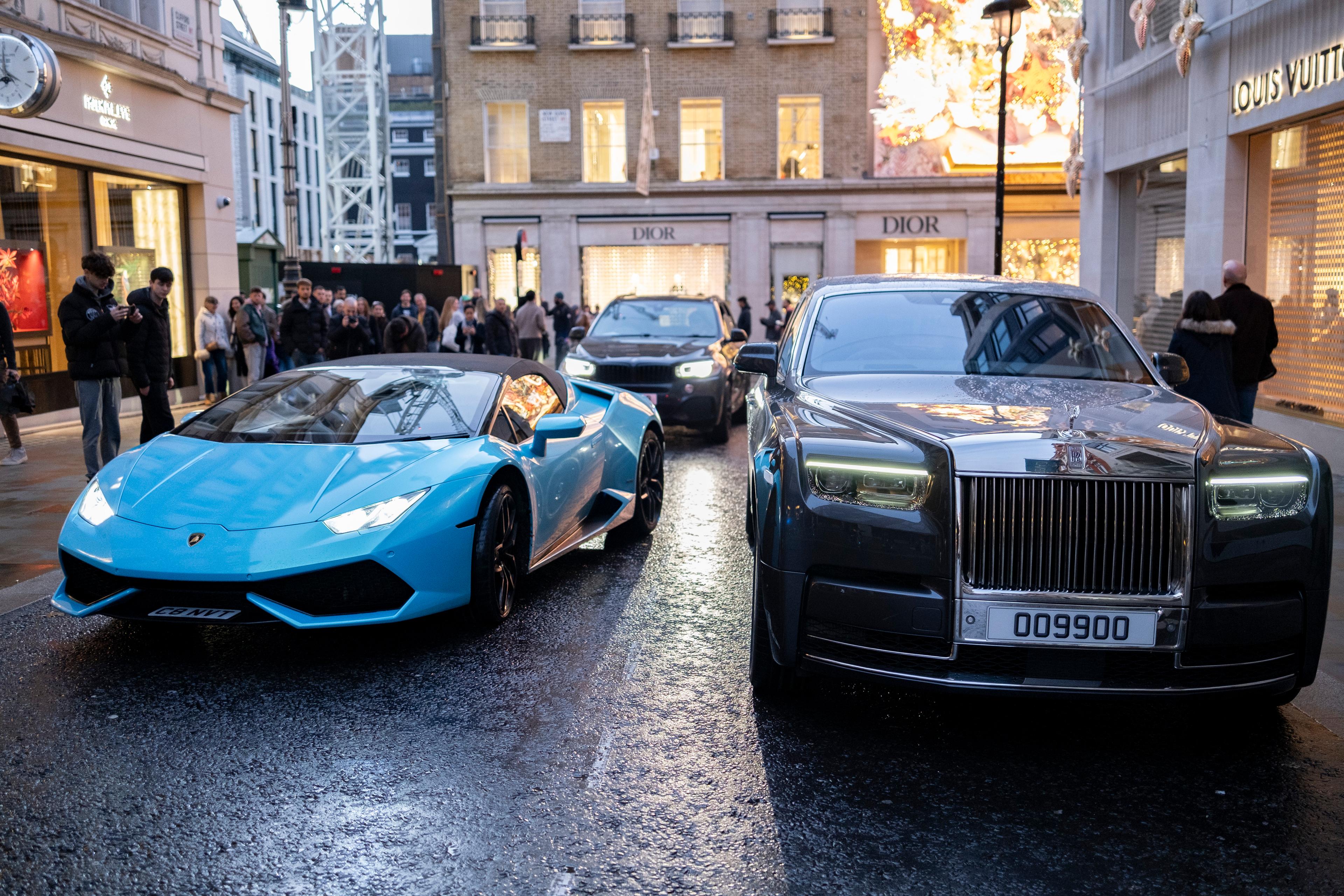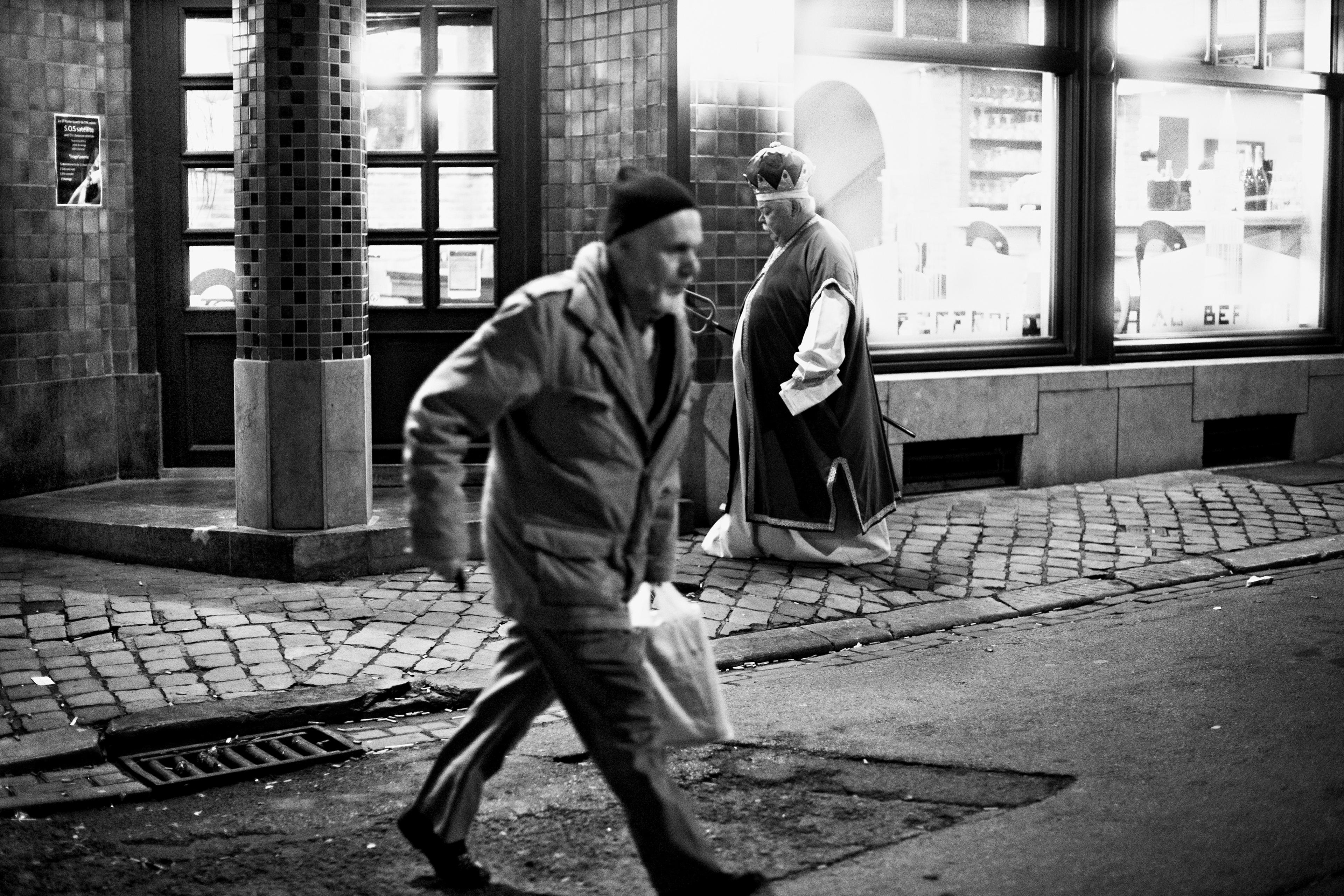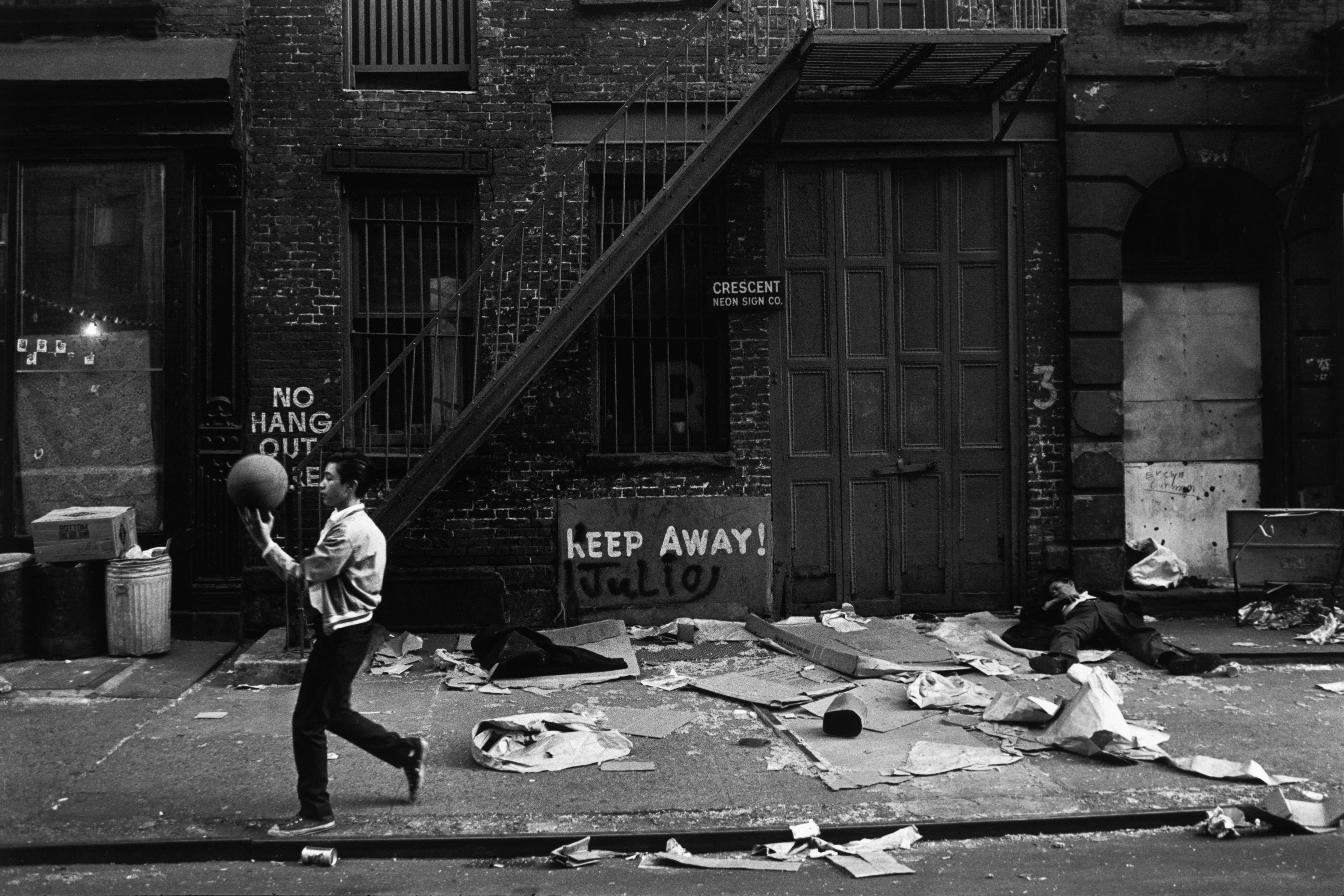‘We have a new image of society … and then out of this we have a new image of religion … I feel more grandiose than I did then because now I think I’d call it the basis for a [new] universalism …’ This bold prediction of unity and renewal comes neither from a bearded prophet nor a New Age guru. The idea that society and religion are heading toward a new universalism comes instead from the psychologist Abraham Maslow speaking in 1972. Maslow is famous for his idea of self-actualisation and his hierarchy of needs. This hierarchy leads the individual from lowly physiological and safety needs (eg, food, shelter) through love, belonging and esteem, all the way to self-actualisation. Today, Maslow’s ideas are back in fashion, covered in innumerable self-help books such as Transcend: The New Science of Self-Actualization (2020) by Scott Barry Kaufman, or The Brother’s Handbook: Abraham Maslow’s Hierarchy of Needs Revised for the Black Man (2020) by Byron Cowan.
Maslow’s theories are based on the idea that, in our ‘very essence’, humans are a ‘perpetually wanting animal’. Our wants are interconnected and interdependent: in a gradual progression, fulfilling one want or need allows for the pursuit of another, higher want or need. As the highest, the pursuit of self-actualisation is an end in itself. ‘Self-actualisers,’ Maslow says, can realise the desire ‘to become more and more’ what they are, ‘to become everything’ that they’re ‘capable of becoming’. In focusing in this way on human potentiality rather than on abnormality, Maslow established what he called a ‘positive psychology’: the study and support of optimal mental health. In emphasising self-actualisation and a new human ‘universalism’, Maslow is not alone. Other thinkers – from Francis Bacon to Francis Fukuyama – have celebrated similar utopian visions of fulfilment and universality.
The idea that life’s ultimate goal is the achievement of self-fulfilment is not limited to philosophy and pop-psychology. It is given expression in everyday slogans such as ‘Be the best version of yourself you can be,’ or warnings that ‘Too many of us are not living our dreams because we are living our fears.’ However, in 1954 Maslow discovered that true self-actualisers are not that easy to find. In screening 3,000 college students for his research, he could identify ‘only one immediately usable subject and a dozen or two possible future ones (“growing well”).’ Among the general public, Maslow found he had ‘to stop excluding a possible subject on the basis of single foibles, mistakes, or foolishness … no subject was perfect.’ In fact, Maslow ended up with only two historical figures (Thomas Jefferson, and Abraham Lincoln in his last years) for whom self-actualisation appeared ‘fairly sure’.
This striking absence of subjects ‘who have developed … to the full stature of which they are capable’ is not just a question of researcher selectivity and human imperfection. It stems from the discontinuities, errors, failures, setbacks and crises that are a part of all our lives. The COVID-19 health crisis likely represents the latest ‘universal’ example. During the first waves of the pandemic, we all experienced discontinuities and disruptions ranging from minor inconveniences (mask-wearing, vaccination, self-isolation) to full-blown crises (job loss, severe illness, death). How do these fit into our life story? What do they contribute to our growing, to our becoming ‘everything’ we ‘are capable of’? In Maslow’s positive psychology, these disruptions can represent only impediments and deprivations. Like an existential game of snakes and ladders, they imply a forced descent down the hierarchy of needs.
But there is a very different way of understanding growth, disruption and crisis. It is articulated not by a psychologist, but by a student of the German existentialist Martin Heidegger. This is Otto Friedrich Bollnow, who started off in 1925 with a PhD in physics, and whose pedagogical and philosophical writing continued well into the 1980s. Bollnow struggled with Heidegger’s claim that we discover our authentic selves through the experience of angst – a crisis of anxiety and dread – which arises only when we face up to the reality of our own death. Bollnow came to believe that it is not always death and angst that play this crucial developmental role. Other kinds of crises are just as important, and so are other emotions and experiences. Bollnow observed that:
It seems to belong to the nature of the human life that it does not proceed as a unitary and continuous process of progress and development. Rather, [one] must run through successive and distinct phases which are separated from one another by breaks, and according to which life from time to time commences again with a new beginning.
A brush with death in a car accident, a serious medical diagnosis, or an upheaval in one’s immediate family can all constitute a crisis. Such events do not represent a brief break after which we return unchanged to our earlier pursuits. These crises also cannot be created ‘artificially’ or planned in advance, and one cannot undergo someone else’s crises on their behalf.
The crises brought on by the COVID pandemic have meant new beginnings for many of us. In early 2020, as COVID spread across the globe, none of us could envision what our lives would be like afterwards. And very few of us simply returned to exactly who or what we were before. ‘A crisis represents a liquidation … the demise of an old order [after which] a new order begins,’ as Bollnow put it in 1959. Instead of facilitating a gradual climb up a hierarchy, crises often lead to a kind of starting over, a striking out in a new direction. ‘The new beginning now no longer means the taking over of a new task in the continuing line of progressive movement, but rather the going back in time, in order to take up once again what was earlier begun.’ Crises change us profoundly; they contribute to our maturation, and in so doing, shape who we ultimately become: ‘Only by passing through crises, does life assume its genuine being,’ Bollnow concludes in 1987. Crises have a way of (sometimes ruthlessly) reminding us of our own limits and vulnerability. Years after Bollnow, the US educator and psychologist Jack Mezirow saw the ‘crisis event’ as a key moment in his understanding of the ‘transformative learning’ of adults.
Our development occurs through a kind of dialectic – a movement between periodic crises and moments of renewal and rejuvenation. ‘This forward and backward’ movement, Bollnow emphasises, is not about ‘accidental and avoidable mishaps, but rather belong[s] to the nature of life.’ Such events must also be seen to redirect not only how we might develop and progress but also what direction and purpose such growth might actually take. In this sense, whatever self-actualisation we might realise in our lives is dependent on the setbacks and losses we have suffered. Unfortunately, these sorts of insights do not attract the kind of interest that, say, a new science of self-actualisation does. Maslow’s grandiose optimism is still celebrated today, while Bollnow’s more realistic insights are quietly forgotten.
Maslow’s idea of sustained self-actualisation atop a hierarchy of fully satisfied human needs is a myth. Being gainfully employed, being involved in healthy social, familial and intimate relations, enjoying physical health, self-esteem, strength and freedom: all of these are worthy pursuits precisely in the sense that they demand ongoing attention and effort. Moreover, we are living in a time of multiple, simultaneous crises, in what Britons have called an ‘permacrisis’. There is an energy crisis; China still faces COVID-19 and maybe also a financial crisis; in the United States, it is inflation and perhaps even the future of democracy itself that is in crisis.
Undertaking much of his mature work in the final years of the Second World War and during Germany’s rebuilding, Bollnow was no stranger to crises and new beginnings. Instead of Heidegger’s angst, Bollnow believed that a rather different inner orientation and frame of mind was important. This is hope, which Bollnow saw as the touchstone of human emotion and existence: ‘Hope thus points to the deeper ground in which the feelings of patience and security are rooted, and without which [we] would never be able to relax [our] attention or go to sleep tranquilly.’ Hope ‘comes to us without any effort on [our] part, as a sort of gift or grace,’ Bollnow adds. It is a frame of mind that connects us to the future, not as the inevitability of our own death, but as ‘an infinite source of new possibilities’. Hope can provide firm ground as crises batter, challenge and change us. What is needed is neither a new universalism nor perpetual satisfaction or self-actualisation, but the openness that only hope can give.
